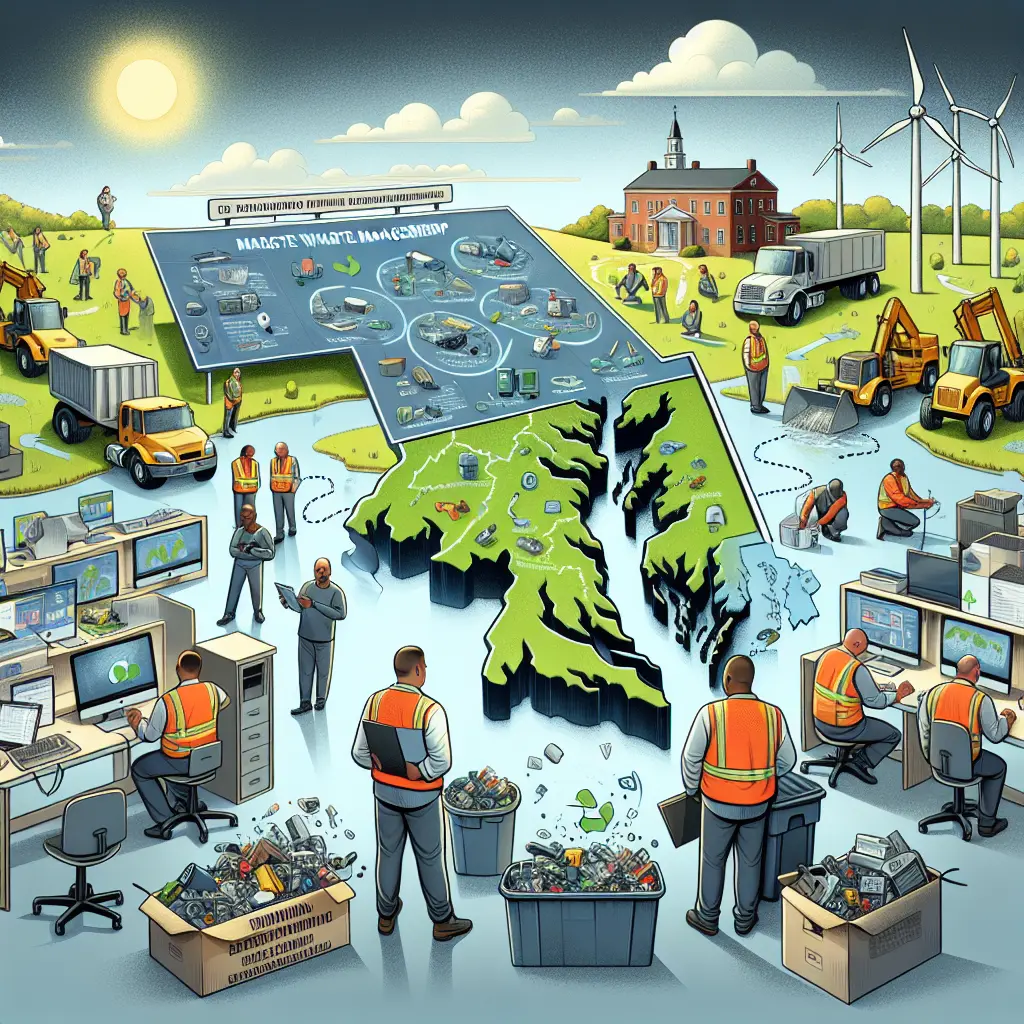In a world where technology is evolving at breakneck speed, managing electronic waste has become a critical aspect of achieving sustainability.
In the ever-evolving landscape of technology, businesses in Maryland and beyond are faced with the unique challenge of managing electronic waste, or e-waste. As technological advancements continue to surge forward, the accumulation of obsolete electronic devices has emerged as a significant environmental concern. This blog post delves into how effective e-waste management is pivotal for sustainable development and highlights the role of companies like R2 Recycling in spearheading this initiative.
With the rapid pace of innovation, devices such as smartphones, laptops, and other electronics become outdated quickly. This obsolescence leads to a growing mountain of e-waste, which poses several environmental and health risks:
Toxic Components: E-waste contains hazardous materials like lead, mercury, and cadmium, which can leach into soil and water sources, causing pollution.
Resource Depletion: Many electronics contain valuable metals like gold and silver. Without proper recycling, these resources are lost.
Leading the Charge: R2 Recycling
Companies like R2 Recycling are at the forefront of addressing these challenges in Maryland and surrounding areas. By implementing comprehensive recycling programs, they ensure that e-waste is processed responsibly:
1. Collection and Sorting: R2 Recycling facilitates the collection of electronic waste from businesses and individuals, categorizing it for effective processing.
2. Data Security: Before recycling, sensitive data is securely erased from devices, ensuring privacy protection.
3. Environmentally Sound Practices: Utilizing advanced recycling techniques, R2 Recycling extracts valuable materials while safely disposing of toxic components.
The Importance of Sustainable E-Waste Management
Sustainable e-waste management is not just about recycling; it encompasses reducing consumption, reusing devices, and designing products for longevity. This holistic approach benefits the environment and promotes a circular economy where materials are continuously reused.
Reduced Environmental Impact: By preventing toxic materials from entering landfills and recovering precious metals, sustainable practices help preserve natural resources.
Economic Benefits: Recycling creates jobs and reduces the need for new resource extraction, lowering production costs for manufacturers.
Healthier Communities: Proper disposal prevents harmful chemicals from polluting the environment, ensuring healthier living conditions.
As we continue to innovate and embrace new technologies, it's imperative to remember our responsibility towards sustainability. Companies like R2 Recycling exemplify how businesses can lead by example in e-waste management, contributing significantly to a more sustainable future.
hereLet us all take a step towards sustainability by supporting and participating in responsible e-waste management practices. Together, we can build a cleaner, healthier planet for future generations.









Leave a Comment